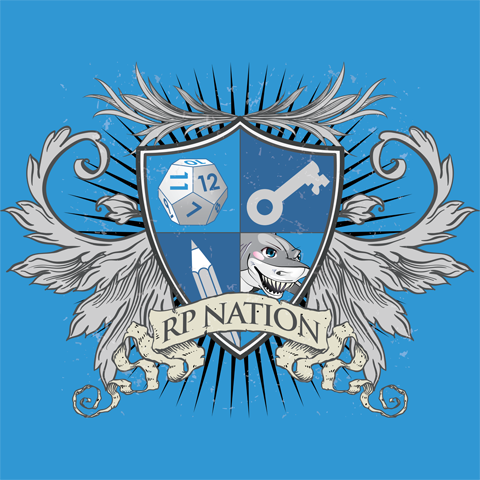DigitalEcho
New Member
So often what you'll see in a thread is that the world builder puts together a backdrop and a hook, perhaps some guidelines for the players to build characters, and keeps the ball rolling as the story progresses toward a climax.
I think this model is both limiting and a major factor in why threads fade out.
Idea: The original writer starts with a character and a small portion of a world. Fleshing it out only by moving around in it with the character. That writer decides which tags apply to the world, be it futuristic or fantasy, cyberpunk or sword & sorcery. Nothing but this.
New writers (not players) join the world with the full authority to add locations, characters, organisations, objects, whatever. Over time, characters may actually meet if writers are minded to move them around the same locations. There is no contrived group to which everyone belongs. The only limit is that the tags be observed. Don't put a magical girl into the futuristic gritty realfest. No, your half demon god of love has no place in the slice of life story about a group of soccer mums coming to terms with the death of their friend. Observe the tags but otherwise contribute without the need of strict approval as to whether or not that location actually exists or I think it's "fair" that your character can do that.
I feel like a lot of the problems with the characters people try to write stem from the constraints of structuring the shared medium. So how about not?
I think I'm going to try this and it'll stay open. Every time someone contributes to the world it will drive interest for the next. I think people might even be persuaded to write well simply to keep up with each other.
Hell if someone joins and god mode kills my character I'm just going to start another one. I only ask that you try and be interesting when you do it.
I'm not going to do a big character bio thing either. The OOC thread bios should contain nothing you haven't shown the reader in the course of the narrative.
If you get what I'm thinking of here. Say something.
I think this model is both limiting and a major factor in why threads fade out.
Idea: The original writer starts with a character and a small portion of a world. Fleshing it out only by moving around in it with the character. That writer decides which tags apply to the world, be it futuristic or fantasy, cyberpunk or sword & sorcery. Nothing but this.
New writers (not players) join the world with the full authority to add locations, characters, organisations, objects, whatever. Over time, characters may actually meet if writers are minded to move them around the same locations. There is no contrived group to which everyone belongs. The only limit is that the tags be observed. Don't put a magical girl into the futuristic gritty realfest. No, your half demon god of love has no place in the slice of life story about a group of soccer mums coming to terms with the death of their friend. Observe the tags but otherwise contribute without the need of strict approval as to whether or not that location actually exists or I think it's "fair" that your character can do that.
I feel like a lot of the problems with the characters people try to write stem from the constraints of structuring the shared medium. So how about not?
I think I'm going to try this and it'll stay open. Every time someone contributes to the world it will drive interest for the next. I think people might even be persuaded to write well simply to keep up with each other.
Hell if someone joins and god mode kills my character I'm just going to start another one. I only ask that you try and be interesting when you do it.
I'm not going to do a big character bio thing either. The OOC thread bios should contain nothing you haven't shown the reader in the course of the narrative.
If you get what I'm thinking of here. Say something.


